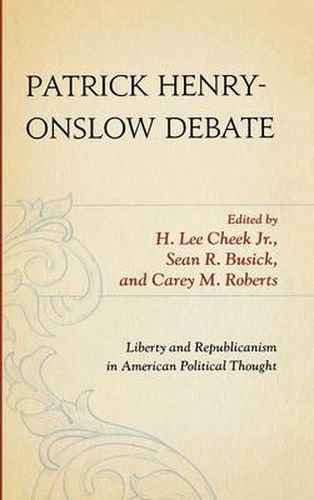Readings Newsletter
Become a Readings Member to make your shopping experience even easier.
Sign in or sign up for free!
You’re not far away from qualifying for FREE standard shipping within Australia
You’ve qualified for FREE standard shipping within Australia
The cart is loading…






The disputed election of 1824 was one of the most important presidential elections in American history. After an indecisive electoral college vote, the House of Representatives selected John Quincy Adams as president over the more popular war hero, Andrew Jackson. As a result, John C. Calhoun ended up serving as vice-president under Adams. Neither man was comfortable in this situation as they were political rivals who held philosophically divergent views of American constitutional governance. The emerging personal and philosophical dispute between President Adams and Vice-President Calhoun eventually prompted the two men (and Adams’s political supporters) to take up their pens, using the pseudonyms Patrick Henry and Onslow, in a public debate over the nature of power and liberty in a constitutional republic. The great debate thus arrayed Calhoun’s Jeffersonian republican vision of constitutionally restrained power and local autonomy against Adams’s neo-Federalist republican vision which called for the positive use of inherent power-a view that would become increasingly compelling to future generations of Americans. In the course of this exchange some of the most salient issues within American politics and liberty are debated, including the nature of political order, democracy, and the diffusion of political power. The level of erudition and insight is remarkable. The Patrick Henry / Onslow Debate deserves a wider popular and scholarly audience.
$9.00 standard shipping within Australia
FREE standard shipping within Australia for orders over $100.00
Express & International shipping calculated at checkout
The disputed election of 1824 was one of the most important presidential elections in American history. After an indecisive electoral college vote, the House of Representatives selected John Quincy Adams as president over the more popular war hero, Andrew Jackson. As a result, John C. Calhoun ended up serving as vice-president under Adams. Neither man was comfortable in this situation as they were political rivals who held philosophically divergent views of American constitutional governance. The emerging personal and philosophical dispute between President Adams and Vice-President Calhoun eventually prompted the two men (and Adams’s political supporters) to take up their pens, using the pseudonyms Patrick Henry and Onslow, in a public debate over the nature of power and liberty in a constitutional republic. The great debate thus arrayed Calhoun’s Jeffersonian republican vision of constitutionally restrained power and local autonomy against Adams’s neo-Federalist republican vision which called for the positive use of inherent power-a view that would become increasingly compelling to future generations of Americans. In the course of this exchange some of the most salient issues within American politics and liberty are debated, including the nature of political order, democracy, and the diffusion of political power. The level of erudition and insight is remarkable. The Patrick Henry / Onslow Debate deserves a wider popular and scholarly audience.